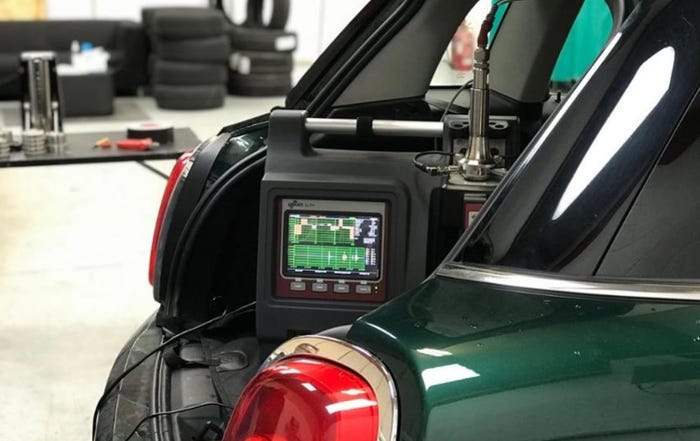Delphi Nears 20% Diesel Market Share
Solenoid-actuated common-rail fuel injectors, which are a third less expensive than more sophisticated piezo units, prove valuable in Delphi’s product portfolio.


PARIS – In the next two years, Delphi Corp. expects to have nearly 20% of the European common-rail diesel market, thanks to its line of less-expensive solenoid-based fuel injectors.
Two years ago, Delphi passed SiemensVDO Automotive to take second place behind diesel pioneer Robert Bosch GmbH, says Guy Hachey, the Canadian-born president of Delphi Europe and Delphi Powertrain Systems.
“Today, Bosch has 55%-60%, we have 17%-18% and SiemensVDO and Denso (Corp.) split the rest,” says Hachey in an interview at the French supplier show Equip Auto. “In 2008, we will be approaching 20%.”
Although Delphi is developing injectors that operate with faster piezo actuators for future applications, it is the less expensive solenoid system that is driving the sales growth as it enters its fifth generation of production.
“The customers have an appetite for options,” Hachey says, noting a solenoid injector costs about one-third less than a piezo injector. Delphi says its solenoid system, which generates injection pressures of 26,100 psi (1,800 bar), will meet Euro 6 emissions regulations as well as those of U.S. Tier 2 Bin 5.
Hachey says Delphi has done particularly well for contracts with the Renault-Nissan Alliance, PSA Peugeot Citroen and Mercedes-Benz and recently has won business with Hyundai Motor Co. Ltd.

Delphi passed Siemens VDO as No.2 supplier of diesel fuel injectors.
There is growing interest in diesels for light vehicles in the U.S. as fuel prices rise; Detroit auto makers already use heavy-duty diesels in their largest pickups. Now there is growing interest at Ford Motor Co. and General Motors Corp. for light-duty diesels, especially as Mercedes, Chrysler LLC, Volkswagen AG and Honda Motor Co. Ltd. all have started diesel programs for passenger cars.
Jacques Monnet, executive director of the French supplier organization FIEV, says if the U.S. appetite for diesel follows the pattern of other new technologies, such as antilock brakes and air conditioning, the market slowly will rise until it reaches 20%, then grow quickly.
“Below 20%, the customer is in a minority, and his investment in technology won’t be repaid when it comes time to sell his car as used,” says Monnet. But once penetration hits 20%, the market will recognize the value.
A growing number of officials in the U.S. are proposing higher fuel taxes to stimulate the migration to more fuel-efficient cars, says Hachey, but there has been no political discussion of using taxes to lower the price of diesel relative to gasoline.
In France and many other European countries, diesel fuel is taxed less than gasoline, which gives drivers a faster payback on their investment in a diesel engine that usually costs €1,000-€2,000 ($1,420-$2,841) more than a gasoline mill.
Hachey says Delphi’s direct-injection system for gasoline engines provides some of the efficiency benefits of a diesel engine at a lower cost and likely will sell well in the U.S.
The system works well with biofuels, he says, which makes it a politically correct solution in countries such as the U.S. and France, which are encouraging ethanol development. He also says customers rate Delphi’s GDI injectors as the quietest.
Delphi expects to come out of bankruptcy in the U.S. by mid-February. The company has solved all its cost problems in the U.S. and won $52 billion worth of new business since going into Chapter 11 two years ago, says Frank Ordonez, president of Delphi’s aftermarket business.
In 2006, Delphi won $9.6 billion in new business with European auto makers and this year through September had added $6 billion in new contracts.
About the Author
You May Also Like



